Global e-Invoicing Compliance Map
Global e-Invoicing Regulations
Tradeshift empowers organizations to engage in global business transactions with suppliers across the globe. We facilitate seamless global e-invoicing and ensure adherence to tax regulations. Learn about the regulations that impact your business and reach out to a Tradeshift expert to help you understand how our platform can help you become compliant while also simplifying your processes.
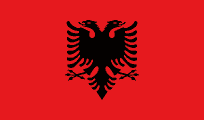
Albania
Type of Compliance: Clearance
Document Storage Requirement: 5 years
The Albanian General Directorate for Tax (Drejtoria e Përgjithshme e Tatimeve – DPT) introduced clearance in 2021. Taxpayers must submit invoices to the central invoicing platform called the Central Information System (CIS) for validation. The DPT validates invoices by assigning a unique code called the NIVF code. The DPT then generates PDF invoices with a QR code and the NIVF code. These invoices can be downloaded from the CIS platform and then sent to the Buyer. The Buyer can validate the invoice using the CIS platform.
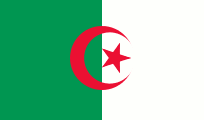
Algeria
Type of Compliance: Post Audit
Document Storage Requirement: 5 years
Algeria has post audit invoice requirements. Requirements are published by the Directorate General of Taxes(DGI) and more details can be found on the DGI website.

Andorra
Type of Compliance: Post Audit
Document Storage Requirement: 3 years
Andorra has post audit requirements based on the requirements of EU Directive 2014/55/EU. E-invoicing is not mandatory but can be used with buyer consent. Peppol can be used on a voluntary basis for B2G transactions.
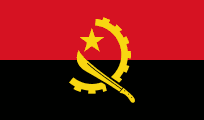
Angola
Type of Compliance: Periodic Reporting Clearance, Post Audit Requirements
Document Storage Requirement: 5 years
Angola has clearance requirements for some businesses that require periodic reporting. This includes businesses with an annual turnover above AOA 50million and those registered with Repartição Fiscal dos Grandes Contribuintes (RFGC). Angolan SAF-T(Standard Audit File for Tax) is provided monthly if requested. Angola has post audit invoice requirements with provincial tax rate variations for the province of Cabinda.
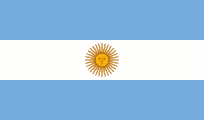
Argentina
Type of Compliance: Clearance
Document Storage Requirement: 10 years
Argentina’s Federal Administration of Public Taxes(AFIP) completed implementing clearance requirements in 2019 after the initial introduction in 2015. In 2021 AFIP introduced the requirement to include QR Codes on digital invoices. The clearance requirement is for suppliers to register all invoices with AFIP before sending them to customers. Invoices are provided a unique CAE(Electronic Authorisation Code) and a QR Code. There are penalties for late filings or mis-declarations which puts a responsibility on the invoice receiver to validate the invoice using the CAE Code with AFIP.
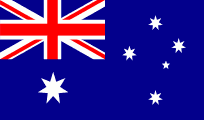
Australia
Type of Compliance: Post Audit
Document Storage Requirement: 5 years
Australia has post audit invoicing requirements. The requirements are published on the government website. E-invoicing is currently voluntary however the Australian Tax Authority advocates for it and is considering introducing the ability for businesses to mandate e-invoicing via Peppol.
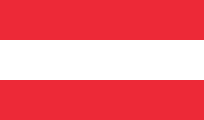
Austria
Type of Compliance: Post Audit
Document Storage Requirement: 7 years
Austria has mandatory e-invoicing for Business to Government(B2G) transactions via Peppol. For Business to Business transactions there are post audit requirements for what must be included in invoices. Requirements vary depending on the value of the transaction. Invoices under 400 Euros can be issued in a simplified format.

Bahrain
Type of Compliance: Post Audit
Document Storage Requirement: 5 years
Bahrain has post audit invoice requirements at present. Bahrain has begun public consultation to discuss introducing clearance controls. The tender for a software provider to support the public invoicing platform ended in May 2023. As of August 2023 no further announcements have been made regarding what the controls to be implemented will require.

Belgium
Type of Compliance: Post Audit
Document Storage Requirement: 7 years
Belgium has post audit invoice requirements at present. Belgium’s Ministry of Finance is attempting to pass tax reforms at present to introduce clearance requirements. The initial proposal indicated a launch date of July 2024 however this is becoming increasingly unlikely. Once introduced it is likely that there will be a phased approach to requirements starting with Peppol based invoicing. The final recommendations of ViDA may also influence the dates and requirements.
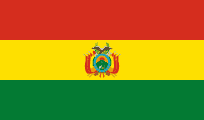
Bolivia
Type of Compliance: Clearance
Document Storage Requirement: 10 years
Bolivia’s National Tax Service’s(SIN) introduced mandatory e-invoicing through the government portal Sistema De Facturacion Electronica(SFE) on 1 December 2021. The SFE e-invoice roll out had been paused due to the COVID-19 crisis but is restarting in 2023. The mandate is defined via a list of companies managed by SIN.
Invoices are made available to customers in SFE. Documents are provided with the certificate from the seller and a digital signature from SFE, it is planned to include QR Codes in the future.
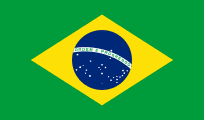
Brazil
Type of Compliance: Clearance
Document Storage Requirement: 5 years
Brazil introduced clearance in 2005. The requirements are complex in so far as there are 6 different invoice structures and issuance requirements vary across over 5000 local taxation jurisdictions for services. Plans to align requirements are in progress.
There are also requirements to provide a DANFE document with invoices where there is movement of goods.
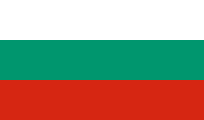
Bulgaria
Type of Compliance: Post Audit
Document Storage Requirement: 10 years
Bulgaria has post audit invoice requirements. Public consultation on introducing clearance controls began in 2021 and the Bulgarian National Revenue Agency began rolling out SAF-T digital reporting requirements in 2022.
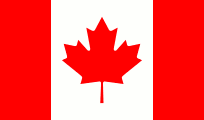
Canada
Type of Compliance: Post Audit
Document Storage Requirement: 6 years
Canada has post audit invoice content requirements. There are multiple provincial tax rates in Canada that need to be selected where applicable. Canada has introduced a standard UBL format that can be used on a voluntary basis.
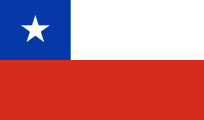
Chile
Type of Compliance: Clearance
Document Storage Requirement: 6 years
In 2001, Chile’s Servicio de Impuestos (SII) tax authority launched its electronic invoice regime, DTE (Documentos Tributarios Electrónicos). SII assigns unique codes to e-invoices and receivers have 8 days to provide electronic approval. DTE provides pre-filled VAT returns.
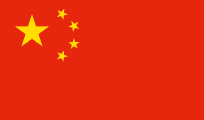
China
Type of Compliance: Clearance
Document Storage Requirement: 10 years
China’s State Taxation Administration (‘STA’) introduced the special e-fapiao e-invoice system in 2020 and has been expanding the mandate regionally with the most recent expansion in January 2023. The mandate applies to businesses with a turnover above RMB 5 million per annum. Invoices contain a digital signature and QR Code.
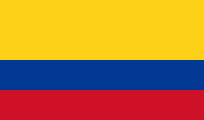
Colombia
Type of Compliance: Clearance
Document Storage Requirement: 5 years
Clearance was introduced in 2019 by Colombia’s National Directorate of Taxes and Customs(DIAN) and came into effect in 2020. DIAN validates content and provides certifications, if a receiver cannot receive the digital format a QR Code invoice is to be provided.
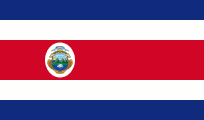
Costa Rica
Type of Compliance: Clearance
Document Storage Requirement: 5 years
Costa Rica’s General Directorate of Taxes (DGT) introduced clearance in 2018 for some tax payers. Mandated suppliers must submit invoices using the Administración Tributaria Virtual (ATV). In case of a rejection the supplier must issue a credit note to reissue a corrected invoice. The buyer receives the invoice and has 8 days to decline the invoice or issue an acknowledgment of receipt.

Croatia
Type of Compliance: Post Audit
Document Storage Requirement: 10 years
There are currently post audit requirements in Croatia but there are changes planned. Croatia’s Ministry of Finance has confirmed their plans to introduce clearance for 1 January 2025 under the tax Projekt Fiskalizacija 2.0. Mandatory B2G e-invoicing has been in place since 2019.
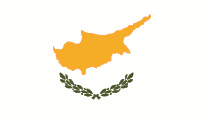
Cyprus
Type of Compliance: Post Audit
Document Storage Requirement: 10 years
There are post audit invoice requirements in Cyprus
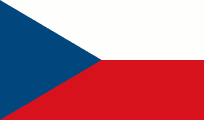
Czech Republic
Type of Compliance: Post Audit
Document Storage Requirement: 10 years
There are post audit invoice requirements in the Czech Republic. Mandatory e-invoicing for B2G transactions is required.
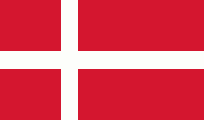
Denmark
Type of Compliance: Post Audit
Document Storage Requirement: 10 years
Denmark currently has post audit content requirements. Digital reporting requirements had been planned for 1st January 2024 with registration by October 2023 as part of the Danish Bookkeeping Act.

Egypt
Type of Compliance: Clearance
Document Storage Requirement: years
The Egyptian Tax Authority (ETA) has been phasing in mandatory e-invoicing since 2021 and this is due to complete in April 2023. E-invoice must contain an eSeal certificate which is provided by one of the certified e-invoice providers which requires specialist hardware to provide. A UUID code is provided which is then provided on the invoice.
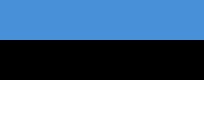
Estonia
Type of Compliance: Post Audit
Document Storage Requirement: 5 years
Estonia currently has post audit content requirements.

Finland
Type of Compliance: Post Audit
Document Storage Requirement: 13 years
Finland currently has post audit content requirements. Finland has not introduced clearance however does allow businesses to mandate e-invoicing using the EU invoice format standard EN16931.

France
Type of Compliance: Post Audit, transitioning to Clearance
Document Storage Requirement: 10 years
France currently has post audit content requirements. The French authorities are introducing a CTC (continuous transaction control) clearance model. The requirements were originally due to come into effect for large and mid-size companies in July 2024 but this date was moved to September 2026, with a phased implementation that includes a restricted pilot on a smaller scale in Q4 2024 and a pilot on a larger scale with many participants in 2025, as announced by the Direction Générale des Finances Publiques (DGFiP).
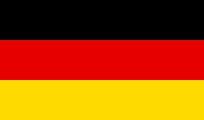
Germany
Type of e-invoicing compliance: Post Audit
Document Storage Requirement: 10 years
Germany currently has post audit compliance requirements for invoices and is working on introducing mandatory B2B e-invoicing. Germany’s Bundesministerium der Finanzen (BMF) announced plans to introduce mandatory B2B e-invoicing starting with 1 January 2025. EN-compliant e-invoice becomes the default in Germany and businesses must be prepared to receive structured electronic invoices compliant with EN 16931 standards by 1 January 2025. Two more phases are planned after this date: the first one by 1 January 2027 when the non-EN-compliant invoices will gradually be phased out starting with businesses that have a turnover of more than EUR 800 000 in the previous year, and the second by 1 January 2028 for all the remaining businesses.
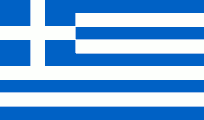
Greece
Type of e-invoicing compliance: Clearance, Periodic Reporting
Document Storage Requirement: 5 years
Greece introduced reporting requirements under MyData between 2021 and 2022. The MyData requirements are changing to live reporting in 2024 where ERPs are used to provide the information. These requirements do not affect the invoice process as paper or PDF invoices must still be sent. There are post audit content requirements for invoices.
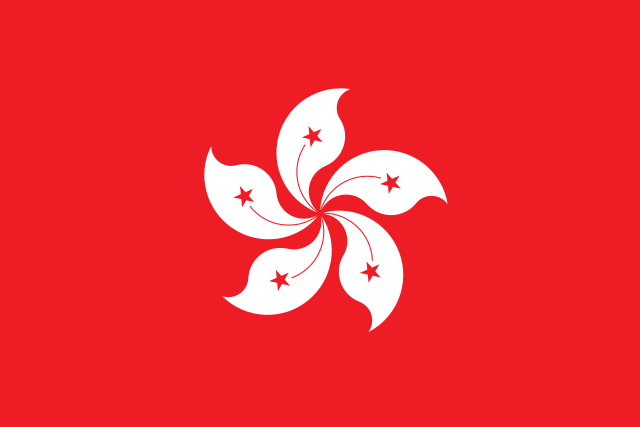
Hong Kong
Type of Compliance: Post Audit
Document Storage Requirement: 7 years
There are standard requirements for what should be included in invoices in Hong Kong. There is no VAT in Hong Kong.
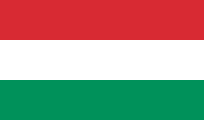
Hungary
Type of Compliance: Post Audit
Document Storage Requirement: 5 years
There are post audit requirements for invoices in Hungary. There are real time invoice reporting requirements in Hungary. This requires tax payers to provide invoices to the government clearance platform, KOBAK, on the day invoices are issued. Invoices are provided with a unique reference number. This reference does not need to be included on invoices.
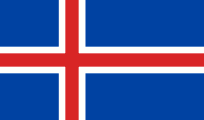
Iceland
Type of Compliance: Post Audit
Document Storage Requirement: 7 years
There are post audit requirements for invoices in Iceland. Whilst clearance has not been introduced Iceland’s government promotes digitisation and provides an e-invoicing platform as well as other incentives.

India
Type of compliance: Clearance
Document Storage Requirement: 8 years
India introduced mandatory e-invoicing using the government’s platform in 2020 and has applied a phased approach, rolling out to businesses based on revenue thresholds. We expect that the mandate will apply to all businesses soon. The clearance process involves pre-clearance for issuers and validation checks required for receivers. These are independent processes meaning the supplier will submit to the Invoice Registration Portal to receive an Invoice Reference Number and QR Code before sending the invoice to their customer with this information. The Buyer will then need to validate the document using the IRN or QR Code.
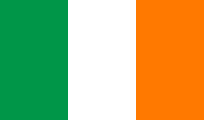
Ireland
Type of Compliance: Post Audit
Document Storage Requirement: 6 years
There are post audit requirements for invoices in Ireland. The Irish Revenue began consultation on possible reforms that could require clearance in 2022. They are likely to adopt the recommendations of VAT in the Digital Age in the future.
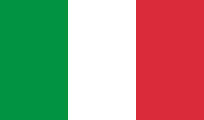
Italy
Type of Compliance: Clearance
Document Storage Requirement: 10 years
Italy introduced clearance in 2019 where taxpayers are required to submit invoices to the government portal Sistema di Interscambio (SDI). The requirement applies to domestic and international transactions.

Japan
Type of Compliance: Post Audit
Document Storage Requirement: 10 years
Japan is introducing the option to use the Peppol network for sending invoices from October 2023 using Japan’s invoice format JP PINT. The requirements require businesses to register as qualified invoice issuers and include the QII number on invoices.
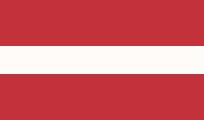
Latvia
Type of Compliance: Post Audit
Document Storage Requirement: 10 years
Latvia currently has post audit invoice requirements. They had announced an intention to introduce mandatory B2B e-invoicing in 2021 and are likely to join the growing list of countries in implementing a clearance model aligned with ViDA recommendations.

Lithuania
Type of Compliance: Post Audit
Document Storage Requirement: 10 years
Lithuania currently has post audit invoice requirements. Lithuania had begun scoping a B2B e-invoicing portal and implementation timeframes in 2022. The eSaskaita electronic invoicing platform is already in place for B2G transactions.
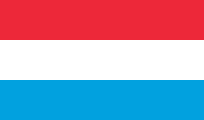
Luxembourg
Type of Compliance: Post Audit
Document Storage Requirement: 10 years
Luxembourg has post audit invoice requirements.
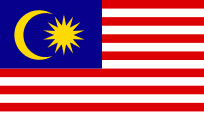
Malaysia
Type of Compliance: Post Audit, transitioning to Clearance
Document Storage Requirement: 7 years
Malaysia is implementing a CTC (continuous transaction control) clearance model via the government platform MyInvois starting in August 2024 for large taxpayers. The Inland Revenue Board of Malaysia (IRBM) has selected 50 companies to participate in the pilot set to start in May 2024, with the program open to any company interested in voluntary participation, and with all taxpayers expected to use the platform and e-invoices by July 2025. A valid e-invoice in Malaysia shall contain 53 mandatory fields and a QR code that will be embedded by the supplier.
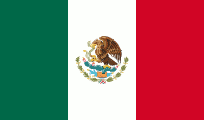
Mexico
Type of Compliance: Clearance
Document Storage Requirement: 7 years
Mexico’s Servicio de Administración Tributaria (SAT) introduced mandatory clearance in 2014. Suppliers submit draft invoices to the Comprobante Fiscal Digital por Internet (CFDI) platform which are assigned a unique code. The customer then has three days to review the invoice before it is automatically validated as a VAT invoice.

Morocco
Type of Compliance: Post Audit
Document Storage Requirement: 10 years
Morocco has post audit invoice content requirements.
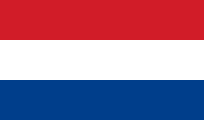
Netherlands
Type of Compliance: Post Audit
Document Storage Requirement: 10 years
Netherlands currently has post audit invoice content requirements. B2G transactions require e-invoicing via Peppol and requirements are driven by Directive 2014/55/EU. It remains to be seen whether Netherlands will implement B2B requirements once ViDA publishes its final report.
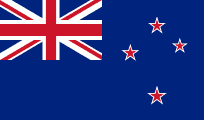
New Zealand
Type of Compliance: Post Audit
Document Storage Requirement: 7 years
New Zealand has post audit invoicing requirements. Policy in this area is typically aligned with Australia so if Australia introduces any mandate it is possible that New Zealand will follow suit.
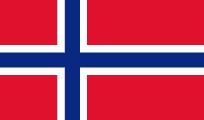
Norway
Type of Compliance: Post Audit
Document Storage Requirement: 15 years
Norway has post audit invoice content requirements. Use of providing structured e-invoices based on Peppol BIS standards has been adopted by the majority of businesses in Norway.
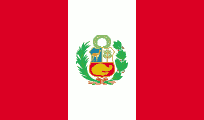
Peru
Type of Compliance: Clearance
Document Storage Requirement: 5 years
Peru’s tax authority, SUNAT (Superintendencia Nacional de Aduanas y de Administración Tributaria) introduced mandatory e-invoicing in 2017. Validation checks are performed by a government approved agent, OSE (Electronic Services Operator) who forwards the invoice to SUNAT and a confirmation of receipt (CDR) is provided.
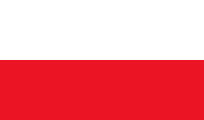
Poland
Type of Compliance: Post Audit, transitioning to Clearance
Document Storage Requirement: 10 years
Poland has post audit content requirements. Poland’s tax authority is in the process of introducing real time reporting requirements. This will require taxpayers to submit invoices to the government portal, KSeF, prior to issuing invoices to customers. There will also be an option for businesses to receive documents directly from KSeF. The planned implementation date for the CTC (continuous transaction control) clearance model was moved from July 2024 to either the spring or summer of 2025, according to the latest updates from the government department leading the project.

Portugal
Type of Compliance: Post Audit, Digital Reporting Requirements
Document Storage Requirement: 10 years
Portugal requires the use of certified software that generates ATCUD codes to generate e-invoices. Invoices must contain the ATCUD code, paper or PDF invoices must include a QR Code. These requirements support the monthly SAF-T reporting requirements in Portugal.

Romania
Type of Compliance: Post Audit, transitioning to Clearance
Document Storage Requirement: 10 years
Romania is streamlining its e-invoicing system, transitioning from a post-audit approach to a mandatory CTC (continuous transaction control) clearance model managed by the National Agency for Fiscal Administration (ANAF) via the RO e-Factura platform. This shift, with a full rollout expected by July 2024, will make paperless B2B transactions the norm. All invoices will require electronic submission in a specific format (UBL 2.1) which is called RO_CIUS (or RO-CIUS) in Romania, ensuring compliance with European e-invoicing standards (EN 16931-1).
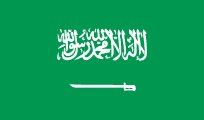
Saudi Arabia
Type of Compliance: Post Audit
Document Storage Requirement: 15 years
Saudi Tax and Customs Authority (ZATCA) introduced mandatory e-invoicing in 2022 with the mandate expanding based on turnover in phases, the next phase is February 2024. B2B invoices require a QR Code and must be validated by the authorities before being sent to a customer.
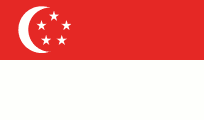
Singapore
Type of Compliance: Post Audit
Document Storage Requirement: 5 years
Plans to introduce mandatory e-invoicing for B2G invoices using InvoiceNow. InvoiceNow is the government’s name for the initiative to drive Peppol adoption. The initiative has been supported by government incentives. It’s currency voluntary for B2B transactions.

Slovakia
Type of Compliance: Post Audit
Document Storage Requirement: 10 years
Slovakia introduced mandatory B2G clearance in April 2023 using the goernment platform IS EFA (informačný systém elektronickej fakturácie) with the intention to roll out to B2B and B2C clearance in 2024.

Slovenia
Type of Compliance: Post Audit
Document Storage Requirement: 10 years
Slovenia has post audit content requirements for documents. Plans to introduce clearance controls have stalled but may be reignited following ViDA.
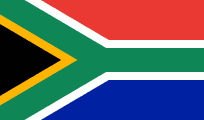
South Africa
Type of Compliance: Post Audit
Document Storage Requirement: 7 years
South Africa has post audit content requirements for documents.
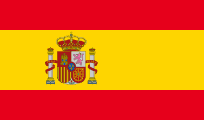
Spain
Type of Compliance: Post Audit
Document Storage Requirement: 6 years
Spain has post audit content requirements for documents. Real time reporting requirements have existed in Spain since 2017. Public consultation finishes in March 2023 on plans to mandate e-invoicing clearance between 2024 and 2026.
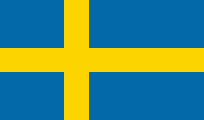
Sweden
Type of Compliance: Post Audit
Document Storage Requirement: 7 years
Sweden has post audit content requirements for documents.
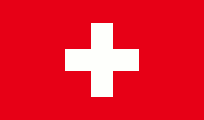
Switzerland
Type of Compliance: Post Audit
Document Storage Requirement: 10 years
Switzerland has post audit content requirements for documents.
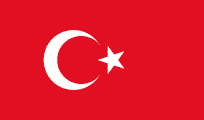
Turkey
Type of Compliance: Post Audit
Document Storage Requirement: 10 years
Turkey introduced mandatory e-invoicing via the government portal in 2014 and lowered the revenue threshold requirement to TRY 10 million in 2019. Over this threshold taxpayers must register with the Turkish Revenue Authority to use e-Fatura invoices.
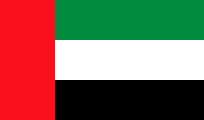
United Arab Emirates
Type of Compliance: Post Audit
Document Storage Requirement: 9 years
UAE currently has post audit content requirements. It is expected that UAE will announce plans to introduce clearance in 2023 following the Saudi model.
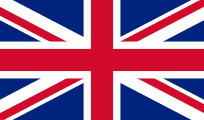
United Kindgom
Type of Compliance: Post Audit
Document Storage Requirement: 6 years
The UK currently has post audit content requirements. The UK Treasury advised that there are no immediate plans to introduce clearance controls but is constantly reviewing policy.
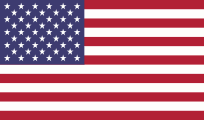
United States
Type of Compliance: Post Audit
Document Storage Requirement: 7 years
The US currently has post audit content requirements. There is currently a pilot at a federal level looking at possible e-invoicing processes.
Learn about E-invoicing Compliance Now
Thank You